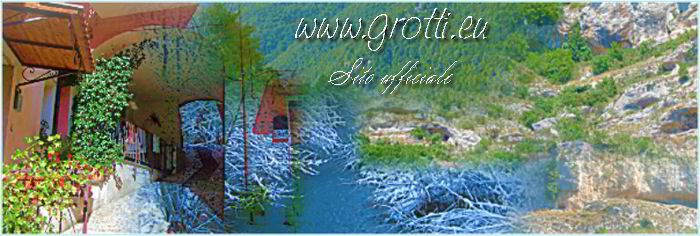|
Events
Sagra degli
Gnocchi: The Festival of the Gnocchi of Grotti, now in its
17th year, has proved to be one of the most popular culinary
events in our region. The ancient recipe remains unchanged
over the centuries and is still used by the Grottigiani housewives
today. It is a complementary combination of a “poor”
food, the potato, worked into light dumplings and served with
traditional sauces. The entire village joins in to organise
the Sagra degli Gnocchi, from the baking of the potatoes to
the preparation of the sauce. The Grottigiani spend a whole
week preparing for this event and anticipating its success.
The 17th of January is the Feast Day of St. Antonio Abbot.
There is a small church dedicated to St. Antonio where there
is a more recent statue of the saint. The original statue
is found in the main church. The newer statue is carried through
the streets of Grotti in a religious procession and displayed
in the parish church on the Monday before the Feast Day. For
a week the traditional Rosary is held in St. Antonio Abbot's
honour accompanied by a traditional song from Grotti. After
mass, there is the procession that ends by placing the statue
back where it belongs. This is an important Feast Day because
the members of both the “fratellanza” organisation
and the committee of festivities are re-elected.
The 1st Sunday of September, Grotti celebrates the Feast Day
of St. Vittorino with ‘triduo’ (three masses)
and religious processions in the village streets. About 20
years ago, the date of this Feast Day was changed for working
reasons. The villagers divided into two factions; those who
wanted the Feast Day celebrated on the 5th of September and
those who preferred it to be celebrated on the first Sunday
of September. After a week of arguments and accusations, the
latter group won.
The 2nd Sunday of September, Grotti celebrates the Feast Day
of the Madonna of the Balzi. Balzi means “to leap”,
and it was the name given by the inhabitants tied to the legend
of the cult. The people of Grotti leave early in the morning,
on the Feast Day, following a narrow mountain pathway that
passes through the ruins of the ancient village leading to
a small sanctuary situated in a cave where the statue of the
Madonna of the Balzi is exposed. The sanctuary is found in
a forest that was considered sacred at the time of the Romans,
for the presence of an Oracle. After the traditional rituals,
the people came back to Grotti following the same path and
afterwards a religious procession takes place in Grotti.
The 1st Sunday of October, Grotti celebrates the Feast Day
of the Madonna of the Rosary. It is this Feast Day which brings
to an end the annual cycle. The small church of Madonna della
Rocia is located near the cemetery.
Traditions
Perhaps the more ancient and beautiful tradition is the Pasquarella.
On New Year's Day and on the Epiphany, two small groups of
single men gather and sing under every house in the village.
The song for New Year's Day describes Purgatory and the suffering
of those trapped in Purgatory, while the song for the Epiphany,
describes the birth of Jesus and the visit of the Magi Kings.
Every family in the village offers a selection of traditional
liqueur and wine to the choral group.
Other traditions
involve a unique display of fireworks and in particular the
dance of the Pantasima.
|

